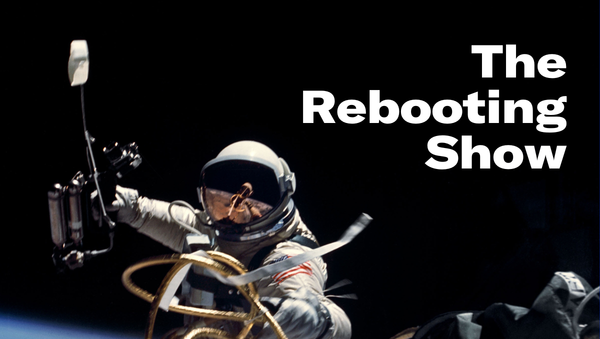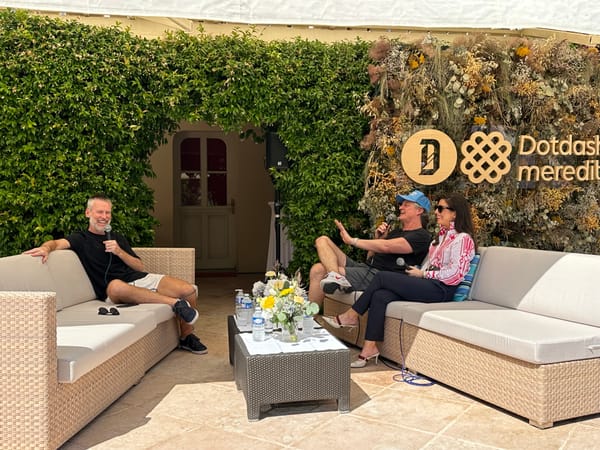Media is still a hard business
The search for shortcuts is a fool’s errand


81% of publishers are investing in this channel—are you?
Impact.com recently surveyed premium content publishers to discover how they invest in revenue growth. Dive into the research to learn about:
- The best performing content types (video is not one of them)
- The top three measurements of program success
- Technology and vendors publishers use for expansion
The media business is still hard
The news that Penn broke up with Barstool brought out many high fives for Dave Portnoy for selling Barstool for $551 million two and a half years ago – with Portnoy owning a big chunk – only to get ownership back for little more than a bro hug, non-compete and a “schmuck clause.”
It’s also a reminder that every promised easy path for media – in this case the content-to-commerce model of media acting as front for a transaction business – has proven illusory.
Barstool’s business value was premised on its ability to turn its rabid fan base into gamblers. For Penn, the playbook of owning media as a front to lower customer acquisition costs wasn’t worth it. The media business is messy, even more so when it’s an outfit like Barstool. The deal didn’t work for Penn, which saw its stock slump during the time it owned Barstool. Lots of things that make sense on paper turn out to be far more difficult in practice. Penn never became more than an also-ran in the category to giants like FanDuel and DraftKings. Easier to cut a run-of-the-mill licensing deal with ESPN.
Barstool can revel in its return to being a pirate ship. Pirates operate far leaner models than navies. The non-compete means Barstool is cutting off the most lucrative avenue for its business. There’s little chance of it ever operating a large brand advertising business, so it might need to rely on selling t-shirts and putting on backyard brawls.
The future of the media business is undoubtedly smaller. Troy returned to this theme on an otherwise meandering episode of People vs Algorithms: “What we don’t know now is where the media models of the future are going to yield to any kind of scaled models with reliable profits.”
There’s no silver bullet business model, whether that’s distributed media, SEO glue factories, streaming, front operations for commerce businesses, newsletters, podcasts, benevolent billionaires or content marketing for media’s tech overlords. The media business is all hard. It’s like what I was told one year by a veteran at the start of the Comrades ultramarathon: “This course is all hard. It keeps coming at you and coming at you.” But then, that’s why people run Comrades. It requires obstinate persistence.
After all, even the billionaires can’t figure out the media business. Jeff Bezos has owned The Washington Post for a decade and is on track to lose $100 million. Laurene Powell Jobs has owned The Atlantic for six years now, and it’s still only promising to break even next year. The dodge is these owners claim they don’t want to make money; they want the influence, only billionaires tend to be nature prefer making money to losing it. They often lose patience and interest.
BuzzFeed was once set to be the bellwether of the digital media sector. It’s now running out of cash and has a market cap of just $73 million. It will need to shed assets like Complex, which it bought just two years ago.
There’s hopeful signs, for sure.The New York Times is reaching escape velocity for the category. It’s closing in on 10 million subscribers, and crucially it has moved a third of them to the bundle. It is making affiliate work, and even its ad business showed 6.5% growth. But it’s telling that commerce is growing faster, and the “other” category is closing in on the advertising line item. The New York Times expects “mid-single digits” growth in digital advertising.
Puck raising its $10 million round that valued the company at $75 million is a positive sign. I like the Puck model, and I appreciate it’s built around talented journalists who have put in more than their 10,000 hours. It has a solid model that combines subscriptions with two lucrative segments of the digital ad market: Hollywood for-your-consideration ads and lobbying ads focused on Washington powerbrokers.
My hope is this kind of model works, because the alternatives aren’t very attractive. The truism that things take twice as long and are twice as long applies to the media business. Whether a model like Puck’s can scale to something like a $500 million valuation is something else entirely.
The media business will always attract newcomers, and the rapidly shifting distribution environment invariably creates seams. The excitement around newsletters has led to get-rich-quick hucksters. Many hustlers want to be the Morning Brew of X, and they approach building a media brand like a reverse engineering exercise. The success of Milk Road – a Morning Brew of crypto that was flipped for a few million after 18 months – has added fuel to the fire. The lesson for many is that success in the media business can be quickly engineered.
Ginning up some kind of subscriber flywheel is one thing, keeping it going is another. The world doesn’t need another AI tips newsletter written by someone who just a few months ago was unspooling Twitter threads about productivity hacks. I’m not optimistic about the long-term viability of most of these publications. Overnight success stories in media invariably turn out to be fleeting. The newsletters with the most long-term potential are those written by people with deep experience in their fields, not those who hop on a hot topic of the moment and figure out some growth hack.
Back in the mid-2010s it was Little Things turning a dog food company into a 50 million uniques publisher. These tend to work for some. A few got to the other side and were smart enough to cash out, like Elite Daily bamboozling Daily Mail to pay over $40 million for a listicle factory ginned up in just three years. More end up like Little Things and the other viral content factories of that time.
There’s no easy answer to media business models, even getting as lean as possible and have just narrow enough of a purview in a lucrative niche – and then put in the work. These micro media models themselves are lower risk with lower long-term potential but still hard to pull off. They require covering a lot of ground with far fewer resources. On any given day, I’m writing, podcasting, selling sponsorship programs (get in touch about working together), putting together proposals, avoiding social media promotion, doing research reports (fill out this survey), building a database of executives to invite to events (give me your information), delicately pushing clients to pay, figuring out if a restaurant can have the right table for 20 people, and more. And then do it week in and week out, for years. It’s the antithesis of a “cash-flowing” passive income business. It would be easier to own a parking lot in a resort town.
One of the reasons I like the independent path is it’s hard. That’s the only moat. Most people don’t want to do all that’s required. It washes out those looking for the easy path. I’ve found the past couple of years building The Rebooting by far the most rewarding of my career and also the hardest. It reminds me of the classic quote in Once a Runner: “Running to him was real; the way he did it the realest thing he knew. It was all joy and woe, hard as diamond; it made him weary beyond comprehension. But it also made him free.”
We tried something new on this week’s People vs Algorithms, with an episode dedicated to the media we turn to during the slower times of August, when the sensible take time off. I probably spent too much time on the incredible story of Stephen the Little, who took fake-it-till-you-make-it to an extreme and ended up ruling Montenegro. Give it a listen on Apple, Spotify or other podcast platforms.
Send me your feedback and konoba suggestions: brian@therebooting.com
Even better, get in touch about sponsorship opportunities. We have a lot of big plans for the fall and in 2024. Thanks to Impact for sponsoring this issue. Check out their “State of Commerce Content” report.




